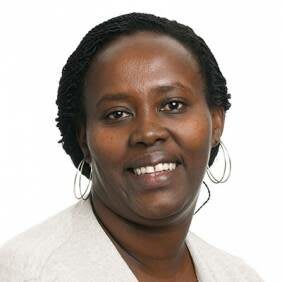Nigeria
We have been supporting peacebuilding and conflict prevention in Nigeria since 2011.
Our programmes contribute to greater social cohesion and increase the capacity of communities to prevent and manage conflict. Our flagship reintegration programme for women and girls who were held captive by Boko Haram is reducing stigma and reshaping negative gendered attitudes to sexual and gender-based violence. We also support children born of Boko Haram sexual violence, believed to be bearing their father’s “bad blood,” and children associated with armed groups reintegrate back into their communities.
We help young people and communities to reduce the push and pull factors for joining extremist groups. We are working to improve the conduct of security forces and build trust and collaboration between them and civilians.
We have also supported the development and implementation of policies on women, peace and security, and provided technical assistance on conflict and gender sensitivity programming to national and international partners.
Conflict context
Since its independence in 1960, Nigeria has experienced a civil war from 1967 to 1970, followed by a succession of democratically elected civilian governments and military dictatorships, until achieving a stable democracy in 1999.
Yet, despite its vast human and natural resource wealth and an increasingly active civil society, years of corruption, clientelism, religious bigotry, injustice and deep mistrust has led to infrastructural decay and policies that have left the average citizen behind.
Failure to acknowledge community grievances, exploitation of existing intercommunal and religious tensions, rapid demographic growth, climate change and dwindling natural resources have only exacerbated the conflicts.
In the Niger Delta region, tension over increased local ownership of oil resources and social development metamorphosed into armed militancy. In the southeast, the wounds of the 1960s civil war continue to fester and a small but influential secessionist movement has burgeoned.
In the northeast, violence by the insurgent group Boko Haram has led to large-scale death and displacement. And in the impoverished northwest, an increase in banditry is claiming lives and property. Meanwhile the north central has become a hotbed for herder–farmer conflicts as well as a religious crisis between Christians and Muslims.

Addressing resource conflicts and climate change impact in Fiidi, Nigeria
A powerful story of reconciliation between the Jukun and Tiv communities overcoming climate-driven resource conflicts and adapting to climate pressures together.







